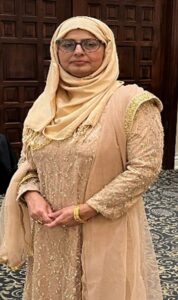
We recently had the pleasure of chatting with our colleague Naila Arain, a Hematology Supervisor in Ontario, about how she celebrates Eid. Naila’s responses offer a glimpse into the significance of Eid, its festive spirit, and the personal customs that make this holiday special.
Eid is a significant Muslim festival celebrated during Eid al-Fitr and Eid al-Adha.
Eid al-Fitr, or the “Festival of Breaking the Fast,” marks the end of Ramadan, the Islamic holy month of fasting. It is determined by the sighting of the new moon. It involves special prayers, feasting, exchanging gifts, and giving to charity.
Eid al-Adha, meaning “Feast of the Sacrifice,” is celebrated just over two months later and coincides with the end of the Hajj, the annual Islamic pilgrimage to Mecca. Both are times of joy, gratitude, and community.
We’re excited to have you dive into our Q&A to discover how Naila marks this celebration!
What are your plans for Eid this year?

My plan for this year’s Eid is the same as last year’s. On the morning of the first day of Eid, we rise early and prepare ourselves with a refreshing bath before heading to the mosque for Eid prayers, held in mosques or large event halls. We dress in our finest traditional attire from our respective cultures or opt for Western clothing.
My family and I typically attend the Eid prayers at the Paramount Center in Mississauga. These prayers are followed by a sermon. Afterward, people warmly embrace each other, exchanging the greeting ‘Eid Mubarak,’ meaning ‘Blessed Eid.’ ‘Eid’ signifies celebration, while ‘Mubarak’ conveys blessings, akin to wishing someone a blessed holiday.
We then enjoy a traditional breakfast featuring sweet delicacies such as Sheer Khurma, Sawaiyan, and Halwa Puri, which I often prepare for my family. We also extend invitations to friends for a potluck gathering at our home, fostering cherished moments with loved ones. This time is especially exciting for children, as they eagerly anticipate exchanging gifts.
Following tradition, we visit elder family members and pay respects at the graves of our ancestors during Eid al-Fitr. For dinner, we venture out to restaurants, relishing the festive ambiance with family and friends.
My family and I give Zakat al-Fitr, a form of charity given before the Eid prayer, which is obligatory for every Muslim. Additionally, we engage in voluntary acts of charity and goodwill during Eid, such as giving gifts, donating to the less fortunate, or supporting community initiatives.
During Eid, we attend community events organized by different organizations and activities, such as festivals, bazaars, and cultural performances. These events provide opportunities for socializing, entertainment, and showcasing cultural heritage. My family and friends go together to enjoy food and cultural activities.
What do you wish others knew about Eid?
One thing I wish others knew about Eid is its universal message of joy, gratitude, and inclusivity. Eid is not just a religious festival for Muslims; it’s a celebration that transcends boundaries and invites people of all faiths and backgrounds to join in the spirit of unity and compassion.
Eid is a time when Muslims come together to express gratitude for blessings, strengthen bonds of friendship and family, and extend acts of kindness and generosity to those in need. It reminds us of the importance of community, empathy, and understanding in our shared humanity.
Moreover, Eid is an opportunity to appreciate the diversity of cultures and traditions within the Muslim world. While the core rituals of Eid remain the same, the way it’s celebrated can vary greatly from one region to another, reflecting the richness and complexity of Muslim cultures worldwide.
By acknowledging and understanding the significance of Eid, we can foster greater respect, empathy, and solidarity among people of different faiths and backgrounds. It’s a chance to celebrate our common values of love, peace, and compassion and to build bridges of understanding and friendship across cultural divides.
What is your favourite Eid dish?
There are many of my favourite dishes like Chicken Biryani, Chicken Roast, Kabob and Tikka Boti Kheer, Cake, etc. 😊

Are there any challenges or misconceptions about Eid you want to address?
- Misconceptions about Eid as solely a religious holiday: While Eid is rooted in Islamic tradition and commemorates significant religious events, it’s also a cultural celebration that brings together families, communities, and people of diverse backgrounds. Recognizing Eid solely as a religious observance overlooks its broader significance as a time for fostering unity, gratitude, and inclusivity.
- The assumption is that Eid is a single-day event: Eid celebrations typically last multiple days, with Eid al-Fitr lasting one to three days and Eid al-Adha typically lasting four days. This extended period allows for ample time for prayer, festivities, and social gatherings.
- Challenges related to inclusivity and understanding: In some regions or communities, misunderstandings or awareness about Eid customs and traditions may exist. This can lead to feelings of isolation or exclusion among Muslims during Eid celebrations. Building bridges of understanding, fostering interfaith dialogue, and promoting cultural exchange can help address these challenges and promote inclusivity.
- Commercialization of Eid: In some places, there’s a growing trend of commercializing Eid, emphasizing consumerism and materialism. This can overshadow the spiritual and communal aspects of the celebration. It’s essential to balance festive activities and the core values of gratitude, compassion, and charity that Eid embodies.
- Logistical challenges during Eid: In densely populated areas or regions with large Muslim populations, logistical challenges such as traffic congestion, overcrowding at prayer venues, and limited access to public services can arise. Local authorities and communities can work together to address these challenges through careful planning, coordination, and communication.
STRONGER TOGETHER
LifeLabs is grateful and inspired by our team members for sharing their stories. The Diversity, Equity and Inclusion (DEI) journey at LifeLabs is to ensure that all individuals feel accepted, respected and valued.
By fostering an equitable and inclusive culture for the team members, customers, and partners, our collective community benefit from understanding the unique perspectives and experiences. The journey to reinforce DEI commitments has demonstrated that at LifeLabs, we are indeed Stronger Together.





